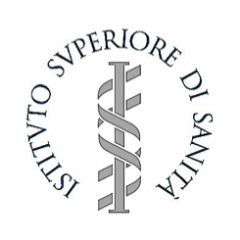

Istituto Superiore di Sanità (Italian NIH)
The Italian Institute of Health, ISS, is a public institute that represents the technical-scientific body of the National Health Service in Italy. ISS carries out research, experimentation, control, consultancy, documentation and training in Public Health issues. ISS focuses on scientific research in a wide variety of fields, from cutting-edge molecular and genetic research to population-based studies of risk factors for disease and disability, employing 1500 scientists. Our Center for Research, Pre-clinical and Clinical Evaluation of Drugs promotes the discovery, development and testing of drugs in order to protect and improve public health. Our unit of Pharmacological Research and Experimental Therapy is focused on the generation of new knowledge in experimental pharmacology. Research focuses on the study of pathogenic mechanisms responsible for diseases, the identification of new markers of disease activity and disease improvement, the search for novel therapy targets, the development and/or refinement of experimental models for chronic diseases, the verification of the efficacy and safety of new drugs (or repositioned drugs) in appropriate cell/animals models.
Role within ImmUniverse
Our unit will participate in work package 5 and will be involved in the verification of the longitudinal tissue and liquid disease signatures in ulcerative colitis and atopic dermatitis patients. This is in line with our main research tasks at our institution, namely the identification of new disease biomarkers, and biomarkers indicating progression/improvement of chronic diseases. ISS will share work with partner RUMC for the standardisation of protocols/workflows to establish single cell subtype isolation protocols from blood and tissues for subsequent immune-phenotyping by using mass cytometry (CyTOF1). This allows for analysis of up to 35 markers in the same sample. Furthermore, ISS will perform CyTOF analysis on AD and UC cohorts to verify specific disease signatures discovered in work package 2 in both blood and tissues, assessing not only surface markers but also expression of cytokines/chemokines by T-cell populations. The final goal is to enable comparison of the functional immune profiles in tissue and peripheral blood and unequivocally demonstrate that the RNA-transcripts identified in work package 2 are accompanied by the production/secretion of the corresponding proteins, with the identification of the cell subtypes that express these proteins. ISS will also contribute to work package 5 by analysing ulcerative colitis and atopic dermatitis biopsies by laser scanning confocal microscopy on frozen or paraffin embedded tissue sections to assess co-localisation of molecules or cell types of both, identified in work packages 2 and 5.
Main Contacts

Dr Loredana Frasca
Senior Researcher

Dr Roberto Lande
Senior Researcher
